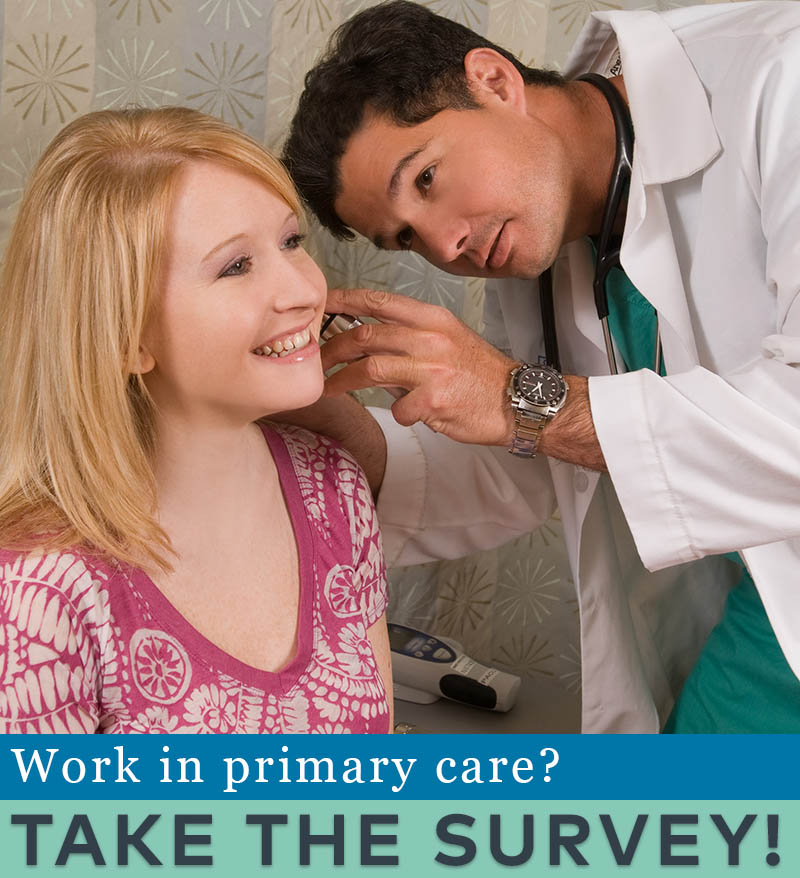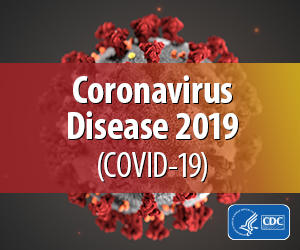You are looking at an archived version of our site. Please visit thepcc.org for a fresh, new experience!
You are here: Array » Primary Care & COV ...
Primary Care & COVID-19: Week 1 Survey
The coronavirus is rapidly impacting the U.S. health care system—including primary care. To track its impact and what’s needed to respond, the Primary Care Collaborative has partnered with the Larry A. Green Center, which is conducting a weekly survey of primary care practices on their response to the COVID-19 crisis. The goal of this effort is to regularly assess primary care’s ability to evaluate and manage patients in the midst of COVID-19 and to consider policy implications going forward.
Check back weekly for the latest survey results and updates. Week Two Results
Are you a physician, nurse practitioner, or PA working in primary care? Help us track how your practice is responding to the COVID-19 outbreak by completing the weekly survey: Week 2 Survey (open March 20-23)
It takes 3 minutes to complete. Questions? Email us at Policy@thePCC.org. Thank you for your time.
Who replied to the survey in Week 1?
Over 500 primary care clinicians across 48 states responded to the initial survey. Respondents largely represent family medicine (70%), followed by pediatrics (14%) and internal medicine (11%), and nearly three-quarters work in a practice with more than three clinicians. The five states with the highest number of responses were: Virginia, Colorado, California, Pennsylvania and New York.
Results at a Glance:
Nearly half (46%) of surveyed primary care practices have no capacity to test patients for COVID-19. Another third (34%) reported only having capacity to test based on CDC guidelines/restrictions.
Even in the first week of surveying, over a fifth (21%) of respondents reported that the current COVID-19 status has had a “severe impact” on their practice; another 30% report the strain as “close to severe.”
Primary care practices report being impacted in a range of ways, including: being overwhelmed by patients’ virtual questions; limiting routine primary care to address patients at risk for the virus; lack of supplies to meet patient needs who may have the virus; and clinicians out due to illness or self-quarantine.
Voices From the Primary Care Front Lines:
Close to half of respondents took the time to comment on their experiences. Of those comments, 85% cited lack of access to protective equipment and testing:
“I cannot get PPE. We have NO masks of any kind.”
“It is appalling to me that we don't have broader testing capabilities. I had a patient two days ago who absolutely should have been tested. But because she hadn't traveled internationally, or had a known contact with COVID, we couldn't. She was flu negative. It's insane. We know it's here in our area, and we aren't looking for it like we need to be. It's maddening.”
Over 30% of comments expressed frustration with failed leadership and confusion in the face of constantly changing or conflicting guidelines:
“Enormous amounts of time and stress it takes to train, then re-train, then re-train, then re-train on the constantly changing protocols.”
“Pitiful government response - our governor did a press conference yesterday telling citizens if they are sick to see their PCP for testing. Stupid.”

Are you a physician, nurse practitioner, or PA working in primary care?
Help PCC and the Larry A. Green Center track how your practice is responding to the COVID-19 outbreak by completing the Green Center's occasional survey.
The regular surveys are no longer being conducted.
COVID-19 Updates
May 9, 2022 | Primary Care Collaborative
April 19, 2022 | Primary Care Collaborative
April 19, 2022 | Primary Care Collaborative
March 7, 2022 | STAT
February 27, 2022
- 1 of 39
- suivant ›

Recent News
August 16, 2024
August 12, 2024
July 16, 2024
May webinar highlights: “The Commercial Market: Alternative Payment Models for Primary Care” Nate Murray explains w… https://t.co/KX9Wi2w6oY —
Il y a 2 années 8 mois
@CMSinnovates’ primary care strategy is rooted in a 2021 @theNASEM’s report which called #primarycare “foundational… https://t.co/glbPxvCysg —
Il y a 2 années 8 mois
@CMSinnovates has a new #primarycare strategy, envisioning “ACO-based primary care model tests that may focus on pr… https://t.co/aJGF1z411l —
Il y a 2 années 8 mois
- Page 1
- ››
Secondary menu
Copyright © 2024 Primary Care Collaborative







